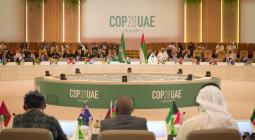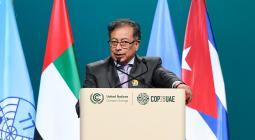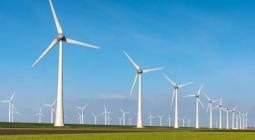Africa’s call to action at COP28? Fund adaptation

For Africa, the climate crisis is a daily reality — one we have been living with for decades. Amid all noise around climate change, what we Africans need to see is action to help us adapt. How are we to cope with the lethal droughts, the devastating storms, and rising seas which threaten our way of life? We hope to get some answers to these questions at COP28 in Dubai which is ongoing as we speak.
Adaptation is fundamental to nature. It is how species evolve, how they survive and thrive in different environments. Now it is the human species that needs to adapt to a new environment, one caused by our own burning of fossil fuels, which has poisoned the skies and changed our climate.
Evolution often takes millennia, but we don’t have that kind of time. Our adaptation needs to be rapid. We need to ensure our homes and buildings can withstand storms, floods, heatwaves, and other extreme weather conditions. We need our agriculture to thrive amid the altered climate. And we need training in new skills and jobs as climate change makes some work no longer viable.
Rich countries, the ones that have caused the most climate pollution, have agreed to fund these adaptation efforts. But scrutiny has laid bare the shocking gap between the adaptation needs of vulnerable countries and the funding that has been made available so far. Last month, the UN’s Environment Programme (UNEP) published its Adaptation Gap report, which highlighted the scale of the problem. It revealed that the gap is 50% larger than previously thought and that the adaptation needs are now 10-18 times as great as the flows of international public finance.
In the words of UN Secretary-General, António Guterres: “Lives and livelihoods are being lost and destroyed, with the vulnerable suffering the most. We are in an adaptation emergency. We must act like it. And take steps to close the adaptation gap, now.”
This yawning adaptation gap is sadly the result of years of developed countries’ reluctance to fund adaptation. Over the years, we in the Global South have seen how developed countries are comfortable funding mitigation activities that reduce emissions but seem not to care much about the people already suffering the impacts of climate change. Could it be because the people who need adaptation are not their people?
Given that climate change is largely driven by fossil fuel burning by developed countries, it not just their moral obligation but their legally-binding obligation under the climate convention to provide the necessary support to developing countries. The Global South must not allow them to get away with neglecting their responsibility. It is an outrage that they haven’t properly funded the adaptation needs arising from their actions.
We note with concern how, over the years, our developed country partners have made grand promises that they then fail to fulfil. In 2009, for instance, they made their now famous pledge to commit $100 billion per year in climate finance by 2020, which long remained elusive. In 2021, they promised to double their adaptation support, which they also have not delivered.
In Dubai, African leaders will be demanding this adaptation gap is bridged and that our Global North partners pay their climate debt. They will also be pushing for an agreement on robust and science-based adaptation targets under the Global Goal on Adaptation, which will be essential to enhance adaptation action.
The more the adaptation gap grows, the more losses and damages will rack up for those who can least afford them. A recent study indicated that the 55 most climate-vulnerable economies alone have experienced losses and damages of more than $500 billion in the last two decades.
The good news is that we know adaptation spending is great value for money. Studies show that every $1 invested in adaptation against coastal flooding leads to a $14 reduction in economic damages. Meanwhile, it is estimated that $16 billion per year invested in agriculture would prevent approximately 78 million people from starving or chronic hunger due to climate impacts.
In Dubai, we need to see developed countries get on board to fulfil their responsibility on adaptation. They should not be allowed to continue looking away whenever adaptation is mentioned. They need to start delivering on their promises to fix the negative effects of their emissions. That would be an outcome from COP28 that Africans could rally behind.





